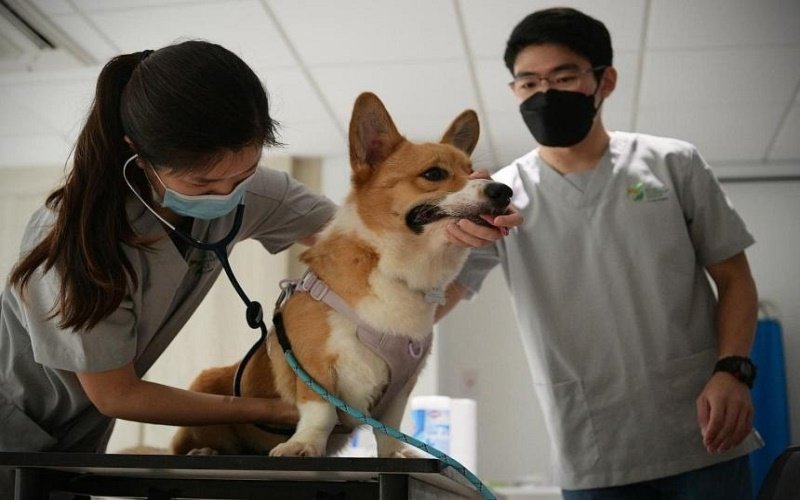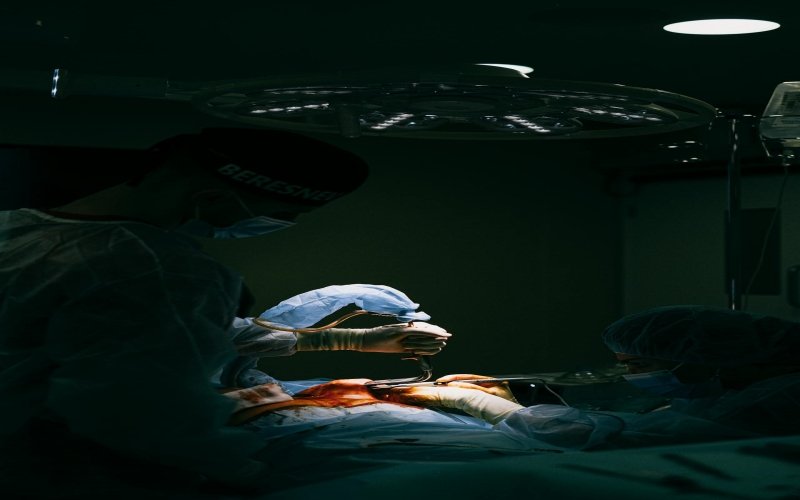Veterinary surgery is a specialized field that involves surgical procedures performed on animals to treat various conditions and injuries. Just like humans, pets can suffer from a range of health issues that may require surgical intervention. Whether it is a routine procedure or a complex surgery, pet surgeons are trained to provide the necessary care and expertise to ensure that our furry companions receive the best possible treatment. Read more to learn about the importance of veterinary surgery, reasons for going to the pet surgeon, and the common types of surgeries that are performed on pets.
The importance of veterinary surgery cannot be overstated when it comes to the health and well-being of our pets. Surgery can be a life-saving measure for animals suffering from serious conditions such as tumors, fractures, or internal organ diseases. In some cases, surgery may be the only option to alleviate pain or improve the quality of life for our furry friends.
Moreover, veterinary surgery is not limited to emergency situations. It also includes routine procedures such as spaying and neutering, which are essential for population control and preventing certain diseases. These procedures not only benefit the individual pet but also contribute to the overall welfare of animals in our communities.
Reasons for needing to go to a pet surgeon in Singapore
There are several common reasons why pet owners may need to seek the expertise of a veterinary surgeon. One of the most common reasons is orthopedic issues, such as fractures or ligament injuries. Pets, especially active dogs, can be prone to accidents that result in broken bones or torn ligaments. In such cases, a veterinary surgeon can perform the necessary procedures, such as fracture repair or ligament reconstruction, to restore mobility and alleviate pain.
Other common reasons for needing a pet surgeon include the presence of tumors or masses that require removal, gastrointestinal conditions that may require exploratory surgery, and dental issues that may necessitate tooth extractions or oral surgeries. Additionally, certain congenital conditions or diseases may require surgical intervention to correct or manage.
The most common surgeries performed on pets
Veterinary surgeons perform many types of surgeries on pets depending on the condition or injury at hand. Some of the most common surgeries include:
- Spaying and neutering: This is a routine procedure performed to prevent unwanted pregnancies, reduce the risk of certain diseases, and improve behavior in pets.
- Soft tissue surgeries: These include procedures such as tumor removal, wound repair, gastrointestinal surgeries, and urinary tract surgeries.
- Orthopedic surgeries: These surgeries address issues related to bones, joints, and ligaments. They may involve fracture repair, joint stabilization, or ligament reconstruction.
- Dental surgeries: Dental issues, such as tooth extractions or oral tumor removal, may require surgical intervention to ensure oral health and prevent pain.
- Ophthalmic surgeries: Conditions affecting the eyes, such as cataracts or eyelid abnormalities, may require surgical correction to restore vision and comfort.
How to prepare your pet for surgery
Preparing your pet for surgery involves several important steps to ensure their safety and well-being. Here are some guidelines to follow:
- Consultation with the veterinary surgeon: Schedule a consultation with the veterinary surgeon to discuss the procedure, potential risks, and necessary preparations.
- Fasting: In most cases, pets are required to fast for a certain period before surgery to prevent complications during anesthesia. You should follow the fasting instructions provided by the veterinary surgeon.
- Medication management: If your pet is currently on any medications, discuss with the veterinary surgeon whether they should be continued or temporarily stopped before the surgery.
- Pre-operative tests: Depending on the age and health status of your pet, pre-operative tests like radiographs or bloodworks may be required to assess their overall health and identify any potential risks.
- Preparing a comfortable recovery area: Create a comfortable and quiet space for your pet to recover after surgery. This may include providing a cozy bed, clean water, and any necessary medications or dressings.
What to expect during and after pet surgery
During the surgery, your pet will be placed under general anesthesia to ensure their comfort and safety. The veterinary surgeon and their team will monitor vital signs throughout the procedure to ensure everything goes smoothly. Your pet will then be moved to a recovery area where they will undergo close monitoring until they are fully awake and stable.
Post-surgery care is very crucial for your pet’s recovery. By all means, you should follow the instructions provided by the veterinary surgeon regarding medication administration, wound care, and activity restrictions. Keep a close eye on your pet for any signs of complications such as excessive swelling, bleeding, or changes in behavior and make sure to contact your veterinary surgeon immediately if you have any concerns or notice any abnormal symptoms.
Taking care of your pet after surgery
Taking care of your pet after surgery involves providing them with a safe and comfortable environment to heal.
- Follow the medication schedule: Administer any prescribed medications as directed by the veterinary surgeon. This may include pain medication, antibiotics, or anti-inflammatory drugs.
- Monitor the incision site: Keep a close eye on the incision site for any signs of infection, excessive swelling, or discharge. Follow the veterinary surgeon’s instructions regarding wound care, such as cleaning or dressing changes.
- Restricted activity: Depending on the type of surgery, your pet may need to limit their activity during the recovery period. Avoid strenuous exercise or activities that may put strain on the surgical site.
- Provide a comfortable environment: Create a quiet and calm space for your pet to rest and recover. Ensure they have access to fresh water and provide a soft bed or blankets for added comfort.
- Follow-up appointments: Attend any follow-up appointments recommended by the veterinary surgeon. These visits are important to monitor your pet’s progress and address any concerns.
The cost of pet surgery in Singapore
The cost of pet surgery in Singapore can vary depending on several factors, including the type of surgery, the complexity of the procedure, and the veterinary clinic’s fees. You should discuss the cost estimate with your veterinary surgeon beforehand to avoid any surprises.
While the cost of surgery may seem daunting, it is important to remember that it is an investment in your pet’s health and well-being. Many veterinary clinics offer payment plans or insurance options to help manage the financial aspect of pet surgery. Research different options and discuss them with your veterinary surgeon to find the best solution for your pet and your budget.
Dr Paws Vet Care
77 Lucky Heights, Lucky Court (next to Patisserie Cle),
Singapore 467626
+62434668



